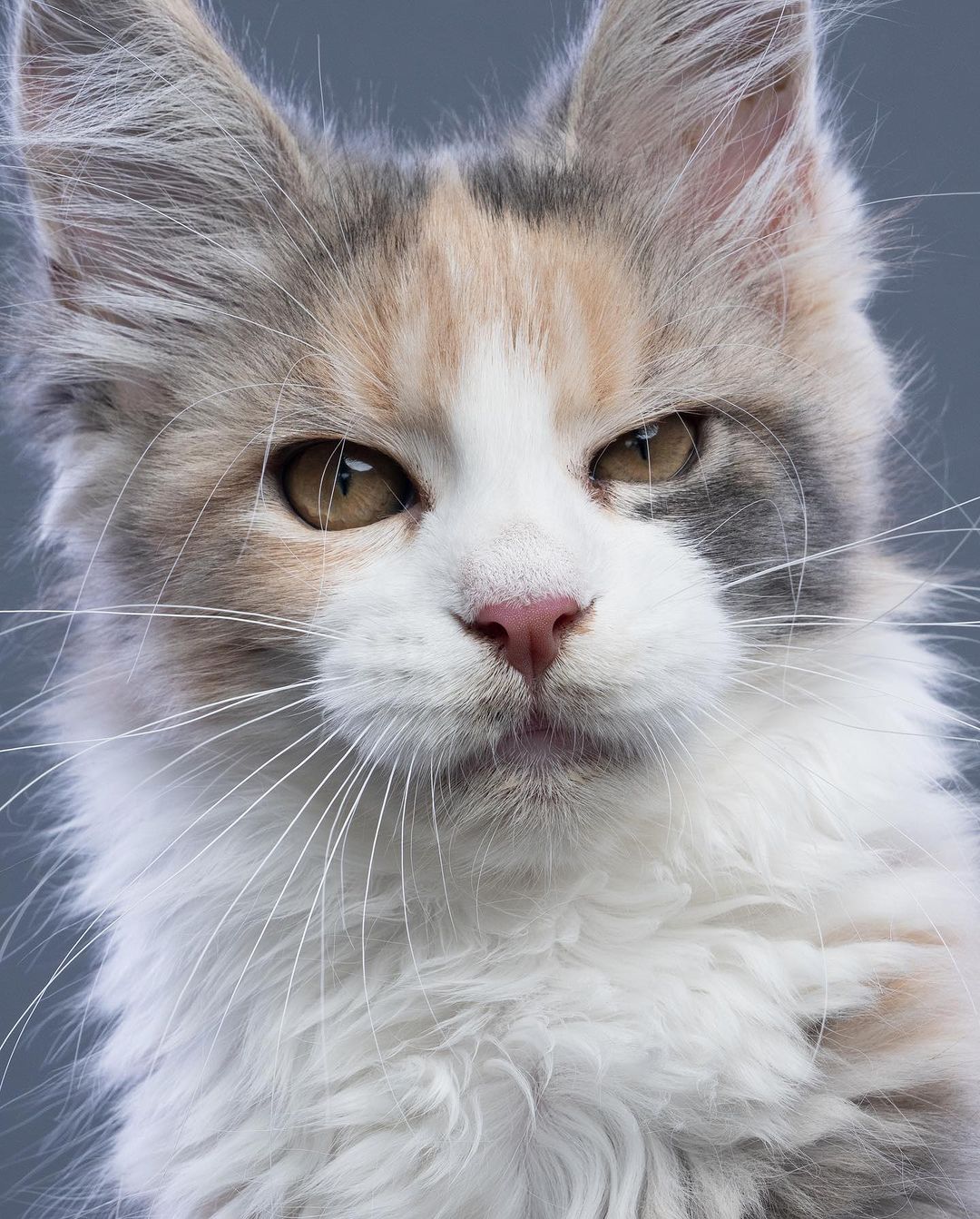In this article, we’ll delve into the captivating world of Maine Coon cats, specifically focusing on their remarkable size.
Originating from Maine and celebrated for their striking features and friendly nature, these cats are uniquely large among domestic breeds.
Understanding their size is not only fascinating but crucial for their proper care, health, and overall wellbeing. Let’s uncover more about these incredible gentle giants.
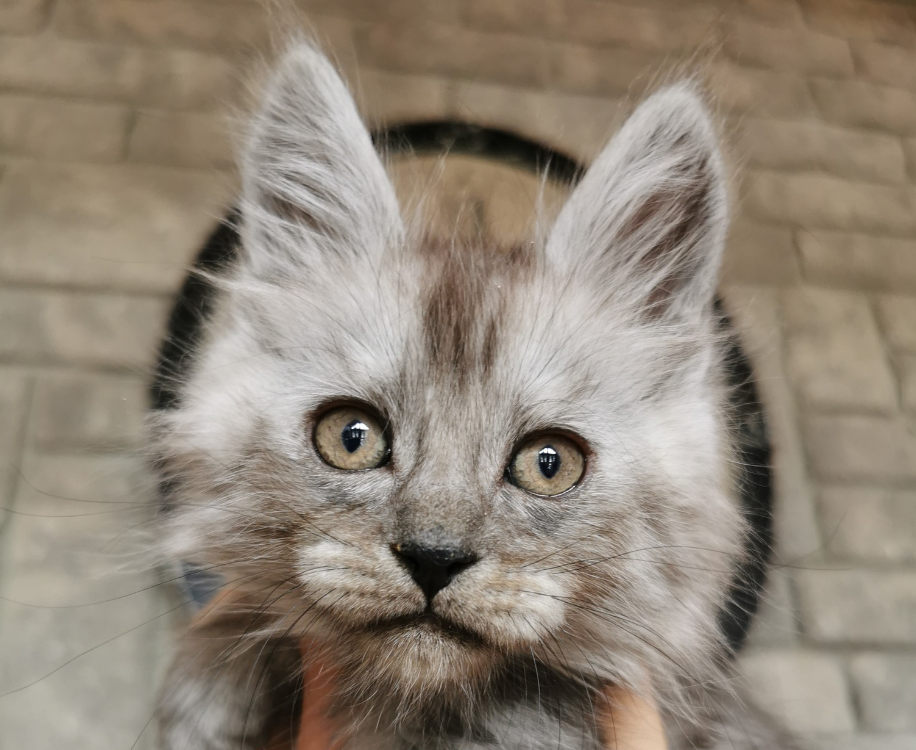
The Anatomy of Maine Coon Cats
Diving head-first into the subject, let’s talk about the anatomy of our beloved Maine Coon cats. Now, these cats aren’t just big in general; every aspect of their anatomy plays a part in contributing to their colossal size.
From their body structure to their magnificent fur, each detail has its role.
Body Structure
Maine Coons have a robust and muscular build. They’re not chunky; rather, they’re just plain big-boned, with a broad chest and strong legs.
Even their paws are larger than average, which kind of makes sense when you think about the heavy load they’ve got to carry. Their tail is another spectacle – it’s long, bushy, and often just as impressive in length as their bodies.
Fur and Coat
One thing you’ll notice instantly about a Maine Coon is their luxurious coat. It’s thick, water-resistant, and can make them appear even larger than they actually are!
It’s longer on their belly and flanks, which makes perfect sense given their origins in chilly Maine. This built-in blanket is perfect for surviving those harsh New England winters.
Eye and Ear Features
Last but not least, let’s talk about those eyes and ears! Maine Coons have large, round, and expressive eyes that can come in a variety of stunning colors.
As for their ears, they’re quite large and tufted. The tufts are not just adorable, but they also add to their overall “bigger-than-life” appeal.
From their muscular structure to their dense, fluffy coat, each aspect of a Maine Coon’s anatomy contributes to their imposing size.
And while their size is part of their charm, it’s also something we, as owners, need to keep in mind while taking care of these magnificent felines.
Growth and Development of Maine Coon Cats
If you’ve been lucky enough to see a Maine Coon kitten, you might’ve noticed they’re a bit larger than your typical kitten. But, that little furball has a long way to go before reaching its full size.
Maine Coons have a pretty unique growth pattern that I think you’ll find quite interesting.
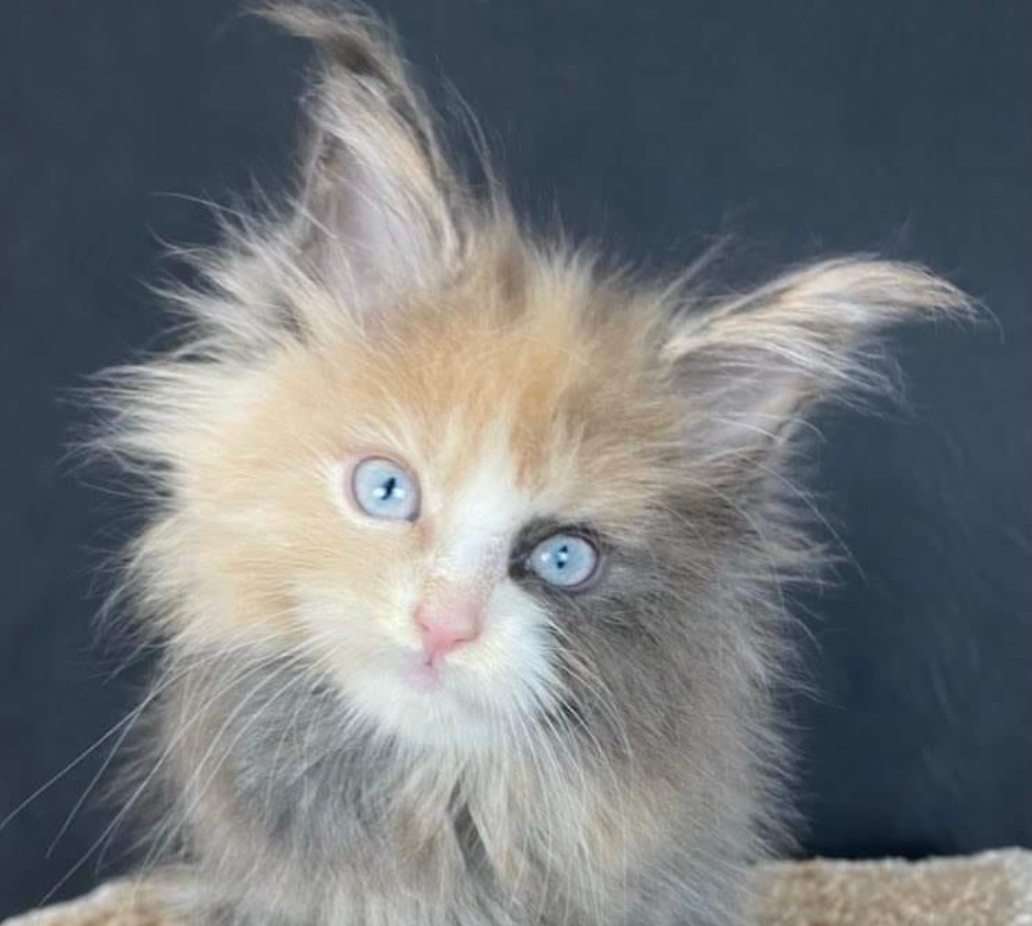
During the first few months of their lives, Maine Coon kittens grow rapidly. However, unlike many cat breeds that reach their full size within a year, Maine Coons take their sweet time.
It can take anywhere from three to five years for these beauties to reach their full potential. That’s right, five whole years!
So, what does this growth process look like? Here’s a rough table to help you visualize:
| Age | Average Weight (Male) | Average Weight (Female) |
|---|---|---|
| 3 months | 4.5 lbs | 3.5 lbs |
| 6 months | 9 lbs | 6.5 lbs |
| 1 year | 13 lbs | 10 lbs |
| 2 years | 15 lbs | 12 lbs |
| 3 years | 18 lbs | 14 lbs |
| 4-5 years | 20+ lbs | 15+ lbs |
It’s important to remember these figures are averages and each Maine Coon will grow at its own rate. Some might be smaller, and some, believe it or not, can get even larger!
Factors such as diet, genetics, and overall health also play a role in a Maine Coon’s growth and development. It’s essential to provide them with proper nutrition and regular vet check-ups to ensure they’re growing healthily.
Just like their growth, Maine Coons’ development into their striking looks and endearing personalities is also gradual. It’s a delightful journey to watch them grow from a playful, oversized kitten into a majestic, gentle giant!
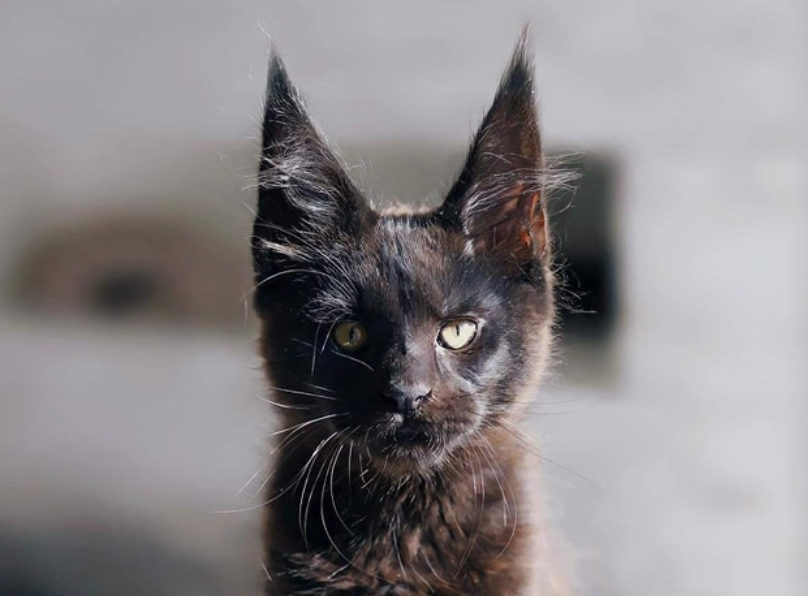
Comparing the Size of Maine Coon Cats with Other Breeds
If you’ve ever found yourself wondering just how your Maine Coon stacks up against other cat breeds in terms of size, well, you’re in for a treat! Let’s get into some comparison stats that will truly put the majestic size of Maine Coons into perspective.
It’s important to note that these are average ranges – individual cats might fall outside these ranges due to factors like gender, diet, and overall health.
| Cat Breed | Average Size | Size Range |
|---|---|---|
| Maine Coon | 18-20 lbs | 10-25 lbs |
| Norwegian Forest Cat | 13-22 lbs | 8-25 lbs |
| Siberian Cat | 15-20 lbs | 8-25 lbs |
| Bengal | 10-15 lbs | 6-20 lbs |
| Ragdoll | 10-20 lbs | 8-25 lbs |
| Domestic Short Hair | 6-16 lbs | 5-20 lbs |
Notable Size Comparisons:
Maine Coon vs Norwegian Forest Cat
It’s easy to confuse a Norwegian Forest Cat with a Maine Coon, given their similar lush coats and large sizes. But on average, Maine Coons tend to be slightly larger, especially when we’re talking about their length.
Maine Coon vs Siberian Cat
Siberian Cats, like Maine Coons, are built to withstand cold climates, resulting in a substantial size and thick coat. However, when you put them side by side with a Maine Coon, the latter generally comes out on top in terms of weight and length.
Maine Coon vs Domestic Short Hair
Here’s where the Maine Coon’s size really shines. Domestic Short Hairs are your more “average” sized cats, and compared to them, Maine Coons can almost look like a different species!
Remember, these comparisons aren’t about making one breed seem superior to another, but rather to illustrate the truly impressive size of our beloved Maine Coon cats.
Maine Coon Size Facts
So, we’ve talked about the anatomy of a Maine Coon, how they grow, and even compared them to other cat breeds. But I bet you’re itching for some cool Maine Coon size facts, right? Well, get ready, because these fun tidbits are sure to impress!
Current World Record Holders
The title for the longest cat in history goes to a Maine Coon named Stewie, who measured an incredible 48.5 inches from the tip of his nose to the tip of his tail. That’s longer than some dogs!
As for the world’s longest cat currently living, that record also belongs to a Maine Coon, a fellow named Barivel, who measures a staggering 47 inches.
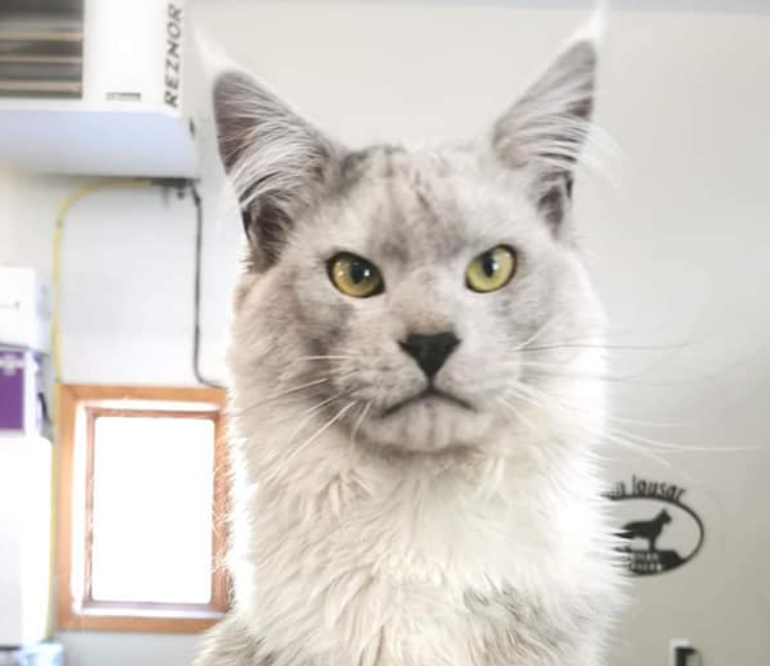
Theoretical Size Limits
While it’s tempting to wonder just how big a Maine Coon can get, it’s important to remember that excessive size can come with health complications.
A healthy weight for most adult Maine Coon males is typically around 13 to 18 lbs, and for females, it’s around 8 to 12 lbs. While they can get bigger, promoting excessive growth isn’t healthy or fair to the cat.
Impact of Gender on Maine Coon Size
As in many species, gender plays a role in the size of Maine Coon cats. Males are generally larger than females, sometimes by a significant margin. But remember, this is a general rule, and individual variations can and do occur.
Role of Genetics and Lineage in Maine Coon Size
Genetics plays a significant role in a Maine Coon’s size. A kitten from larger parents is likely to grow larger than one from smaller parents. Additionally, specific lines or families of Maine Coons may be known for their larger (or smaller) size.
From record-breaking sizes to the influences of gender and genetics, these facts underscore the variety and fascinating extremes of the Maine Coon breed. It’s no wonder we’re constantly in awe of these stunning felines!
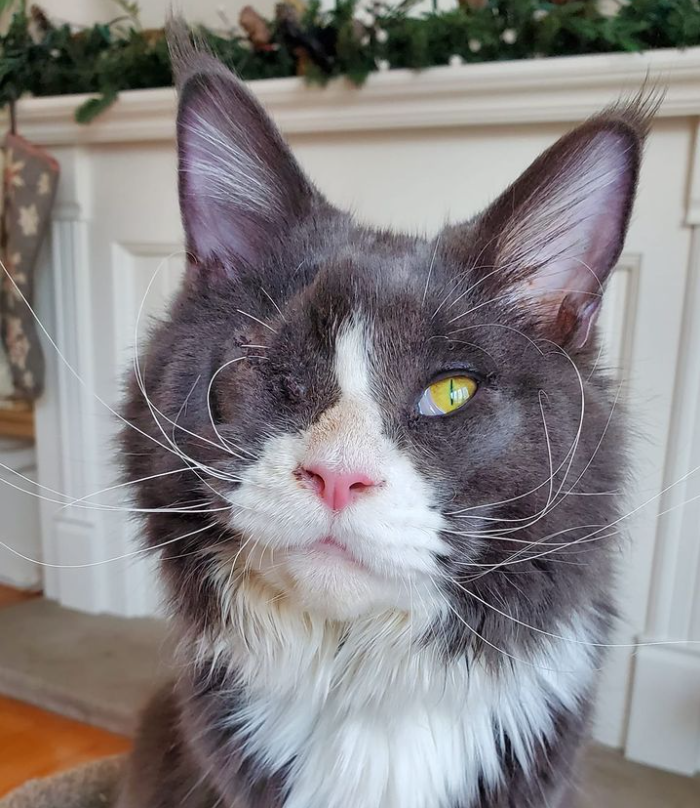
Maine Coon Size and Health
Now, onto a very important topic: the impact of size on the health of our Maine Coon friends. While it’s true that Maine Coons are naturally large cats, being too large can pose some health risks.
Common Health Issues Related to Size
Maine Coons, due to their size, are prone to certain health issues. These include joint problems such as hip dysplasia, a condition that can cause discomfort and mobility issues.
Obesity is another concern, especially if a Maine Coon is overfed or doesn’t get enough exercise. Obesity can lead to other serious health issues like diabetes and heart disease.
Importance of Regular Vet Checkups and Monitoring Size/Growth
It’s essential to monitor your Maine Coon’s growth and weight. Regular vet check-ups are key for this. Your vet can help track your cat’s weight, ensure they’re growing at a healthy rate, and help catch any potential health issues early.
Proper nutrition and regular exercise are also crucial to ensure your Maine Coon maintains a healthy weight. Providing a balanced diet and plenty of playtime can help keep your Maine Coon in tip-top shape.
Remember, a healthy Maine Coon is a happy Maine Coon. Their size is part of what makes them special, but it’s our responsibility as owners to make sure they stay healthy and thrive.
Debunking Maine Coon Size Myths
In the vast world of Maine Coon enthusiasts, a few myths about their size have made the rounds. Let’s take a moment to set the record straight and debunk some of these tall tales.
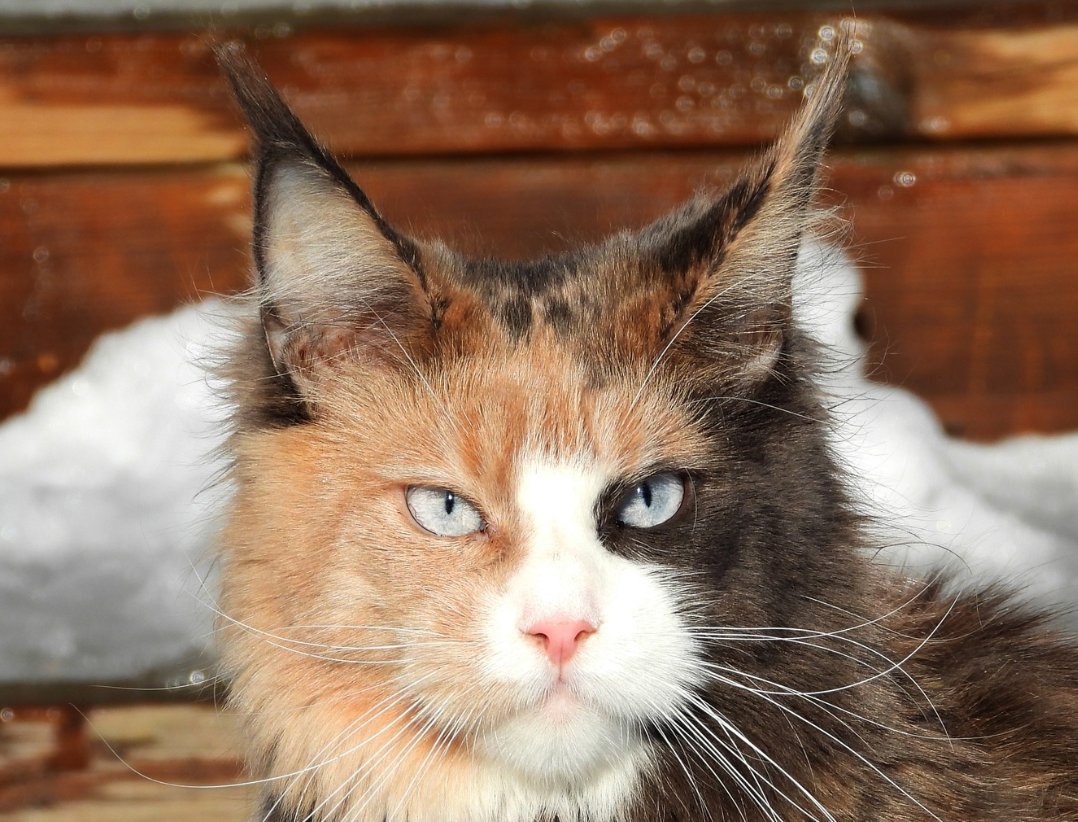
Myth 1: All Maine Coons Are Giants
While Maine Coons are larger than your average cat, they aren’t all giants. Their size can vary greatly, and some Maine Coons are closer in size to a large domestic cat than to the record-breaking titans you might see on Instagram.
Myth 2: Maine Coon Kittens Are Always Bigger Than Other Kittens
Maine Coon kittens are often larger than other kittens, but it’s not a hard-and-fast rule. Sometimes a Maine Coon kitten might be the same size or even smaller than a kitten of a different breed. It’s their growth rate in the years to come that truly sets them apart.
Myth 3: You Can Determine a Kitten’s Adult Size by Its Paw Size
The old wives’ tale that big paws mean a big cat isn’t always true. While it’s true to some extent that a kitten with large paws might grow into a larger adult, it’s not a definitive indicator. Genetics, diet, and overall health play a more critical role in determining a Maine Coon’s adult size.
Myth 4: Maine Coons Are Fat Cats
This one couldn’t be further from the truth. A healthy Maine Coon isn’t fat – they’re just big! Their large frame, long body, and heavy bone structure make them naturally larger. That said, like all cats, they can become overweight if they’re overfed or don’t get enough exercise.
Myth 5: Bigger Maine Coons Are Better
Size doesn’t determine a cat’s worth. A Maine Coon’s value lies in its health, temperament, and how well it fits with its family. While it’s impressive to own a large Maine Coon, promoting excessive size can lead to health issues.
Understanding the reality behind these myths can help you appreciate Maine Coons for what they truly are and ensure you provide them with the best care. As always, healthy and happy should be the goal for our furry friends, not simply size.
Final Thoughts
Maine Coons are renowned for their size, which contributes to their majestic charm. However, their size also necessitates special care and awareness of potential health issues.
While it’s exciting to marvel at these gentle giants, as owners, it’s crucial to prioritize their wellbeing over their stature. Always remember, the real beauty of a Maine Coon lies not in its size, but in its heart.
References
In order to ensure that the information provided in this article is accurate and up-to-date, it’s always important to reference credible sources. Here are some references that were used in the creation of this article:
- Fogle, B. (2016). The New Encyclopedia of the Cat. DK Publishing.
- Helgren, J. (2013). Maine Coon Cats: Everything about Purchase, Care, Nutrition, Reproduction, Diseases and Behavior. Barron’s Educational Series.
- Edney, A. (1991). The Complete Cat Health Manual. Simon and Schuster.
- Lyons, L. A., & Foe, I. T. (2013). Genetics and the Behavior of Domestic Animals. Academic Press.
- Maine Coon Breed Council (2024). Breed Health. Retrieved from https://www.mainecoonbreedcouncil.org/breed-health/
- The International Cat Association (2024). Maine Coon Breed. Retrieved from https://tica.org/mainecoon-breed
These references should provide additional information for those interested in learning more about the impressive size and health considerations of Maine Coon cats.

